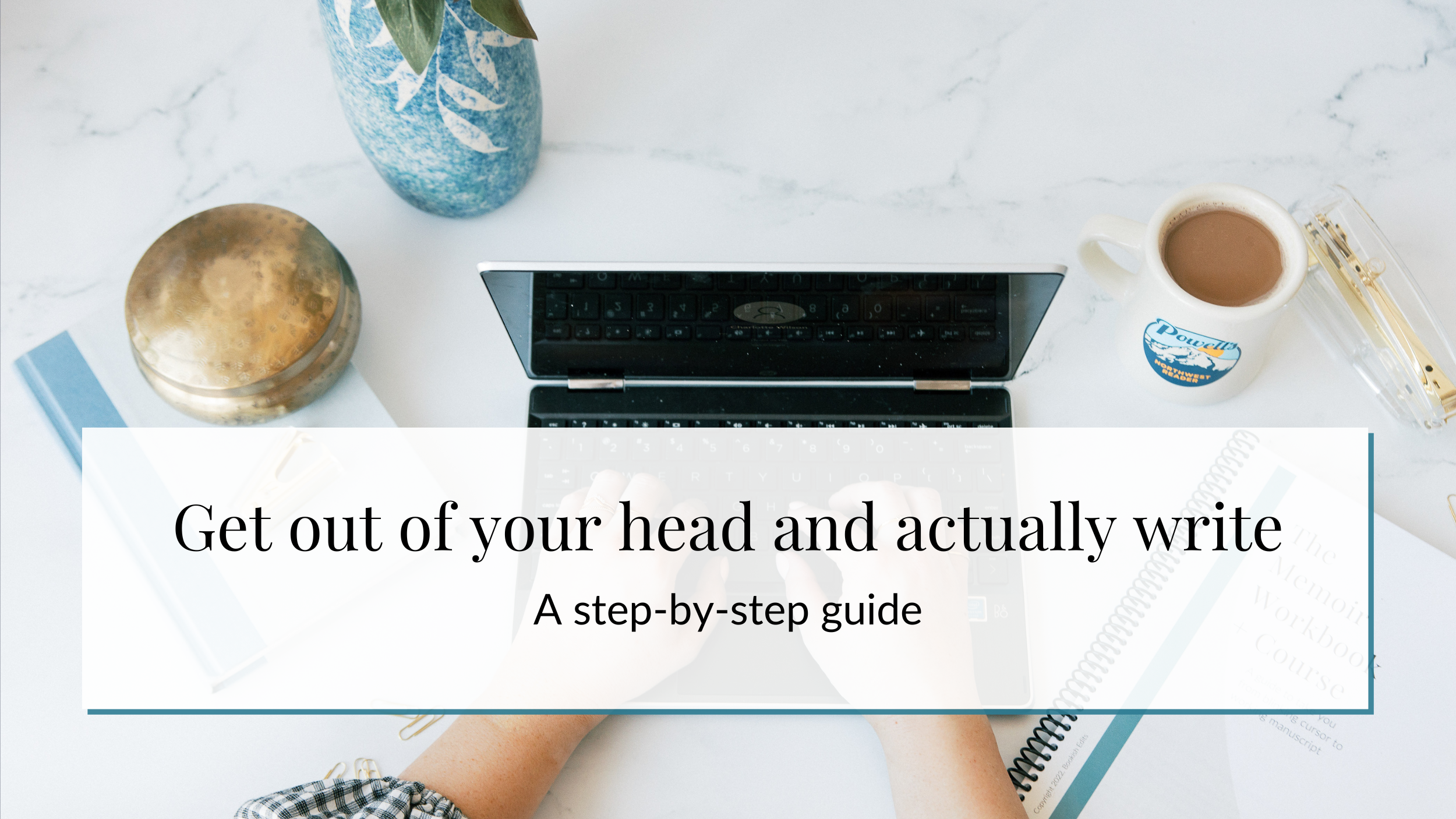How to actually write: a step-by-step guide to getting out of your head and onto the page
How many of us have said that we have a great idea and are going to start writing—soon? Every writer, at some point, has said that they’ll start writing soon. Some—many—writers do eventually start writing. And some—many—writers stay in their heads thinking, Some day. I’m here to kick you out of your head and get you onto that page. Let’s start.
Make the time, don’t find it.
We have only twenty-four hours in a day, only seven days in a week. We have only twelve months in a year. Life happens and days fill up—fast. If you want to actually write, make the time to do it. You won’t wake up someday and magically have three hours set aside in your calendar that are just for writing. To actually write, you have to carve out that time. (Better yet, carve out the space. Go to your library, clock out yet stay in your office after hours, wake up early when the whole house is quiet. Carving out space is just as important as making the time.)
2. Be accountable
I know, I know. Accountability. This could look a few different ways. You could confide in someone—a partner, a friend, a sibling, an internet friend, an editor.
Most importantly, though, you need to be accountable to yourself. What will motivate you to take yourself seriously? It could be asking someone in your life to hold you to your goals (writing for five hours a week, finishing your NaNoWriMo manuscript, submitting a book proposal). A few years ago I incentivized myself to finish a workout program with a book subscription. I told myself that if I finished the program, I would treat myself to three months of this independent bookstore subscription. (I finished the workout program.)
Accountability matters, especially to yourself.
3. Write, don’t revise (yet).
When you sit down to write your first draft, remember that it’s a first draft. At this point, done is better than perfect. The act of writing is better (at this point) than what you actually write. As you physically write (or type, as the case may be), your brain will start acting differently. You’ll be even more invested and convicted in what you have to say. Your mind will start producing more ideas because in the act of writing what’s at the front of your brain, you’re making room for more thoughts to come forward.
Don’t worry about revising. That will come later. (And yeah, you might end up trashing a lot of this early draft—but it’s there, when before you started writing, you had a blank page.) Once it’s time for you to revise, you’ll be invested enough in your manuscript to keep with it, even when revising makes you want to tear your hair out. Right here, right now—just write.
4. Value your story.
Mindset matters in writing. If you don’t think that your story has value, you won’t write it like it matters (and your reader will be able to tell). If you want anyone to care about your story, you have to care first. I know that imposter syndrome can come it hot as a writer—and imposter syndrome lies. Remember—your story matters, you matter. For anyone to see the value in your story, you have to write it knowing its worth. That confidence will keep you writing even when it’s hard, even when you don’t feel like writing, even when what you write will need serious editing. Because what matters right now? The story. The writing. The words.
Okay, so get out of your head. Go write.
Your story matters.


